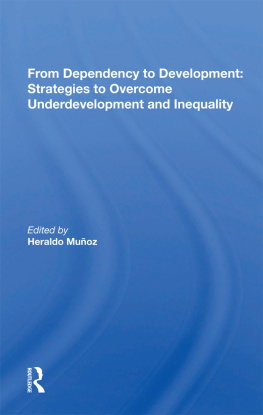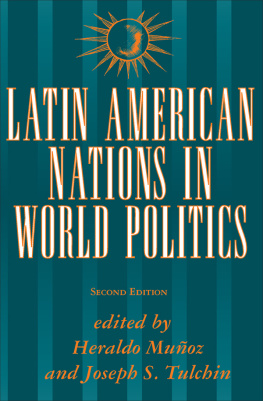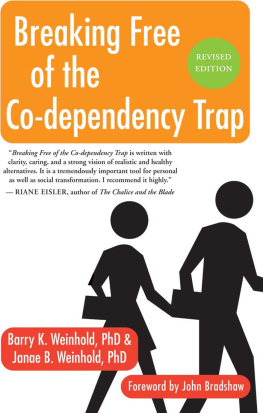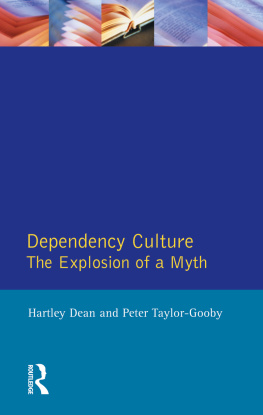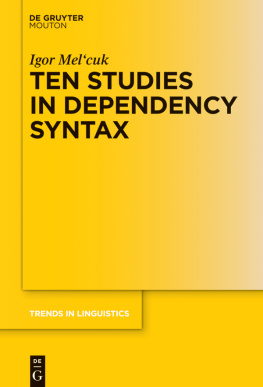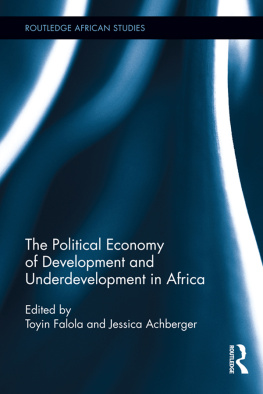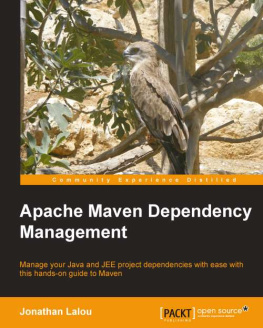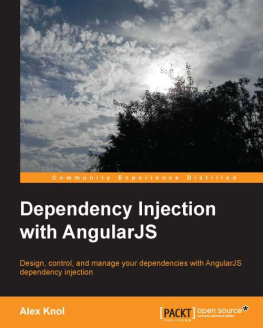From Dependency to Development
Also of Interest
Food, Politics, and Agricultural Development: Case Studies in the Public Policy of Rural Modernization, edited by Raymond F. Hopkins, Donald J. Puchala, and Ross B. Talbot
Appropriate Technology for Development: A Discussion and Case Histories, edited by Donald D. Evans and Laurie Nogg Adler
Governments and Mining Companies in Developing Countries, James H. Cobbe
The New Economics of the Less Developed Countries: Changing Perceptions in the North-South Dialogue, edited by Nake Kamrany
Technology and Economic Development: A Realistic Perspective, edited by Samuel M. Rosenblatt
Protein, Calories, and Development: Nutritional Variables in the Economics of Developing Countries, Bernard A. Schmitt
Economic Development, Poverty, and Income Distribution, edited by William Loehr and John P. Powelson
A Select Bibliography on Economic Development: With Annotations, John P. Powelson
Technology and Underdevelopment, Frances Stewart
Migration and the Labor Market in Developing Countries, edited by R. H. Sabot
Credit for Small Farmers in Developing Countries, Gordon Donald
Renewable Energy Resources and Rural Applications in the Developing World, edited by Norman L. Brown
Transnational Enterprises: Their Impact on Third World Societies and Cultures, edited by Krishna Kumar
*The Challenge of the New International Economic Order, edited by Edwin P. Reubens
*Available in hardcover and paperback
Westview Special Studies in Social, Political, and Economic Development
From Dependency to Development: Strategies to Overcome Underdevelopment and Inequality
edited by Heraldo Muoz
Although much has been written on the concept, nature, and implications of dependency in underdeveloped countries, there is a noticeable lack of comprehensive material on dependency reversalthe ways and circumstances under which dependency and underdevelopment can be overcome. Dr, Muoz brings together in a coherent volume the alternative strategies for dependency reversal that have been posed by leading social scientists; the emphasis is on commonalities, differences, and theoretical and practical derivations.
The book outlines the basic features of the dependency literature and clarifies the emergence and development of the dependency paradigm, its meaning, and its differences from other theoretical perspectives on underdevelopment. New aspects of dependency situations are also introduced. Significant alternatives to dependency are offered, taking into account varying geographical, ideological, and functional factors. Though no claim is made that all existing answers to development are included, this is clearly the most complete work available to date.
Heraldo Muoz is professor and research associate at the Institute of International Studies, University of Chile. He was previously a guest scholar in the foreign policy section of the Brookings Institution.
From Dependency to Development: Strategies to Overcome Underdevelopment and Inequality
edited by Heraldo Muoz
First published 1981 by Westview Press
Published 2018 by Routledge
52 Vanderbilt Avenue, New York, NY 10017
2 Park Square, Milton Park, Abingdon, Oxon OX14 4RN
Routledge is an imprint of the Taylor & Francis Group, an informa business
Copyright 1981 by Taylor & Francis
All rights reserved. No part of this book may be reprinted or reproduced or utilised in any form or by any electronic, mechanical, or other means, now known or hereafter invented, including photocopying and recording, or in any information storage or retrieval system, without permission in writing from the publishers.
Notice:
Product or corporate names may be trademarks or registered trademarks, and are used only for identification and explanation without intent to infringe.
Library of Congress Cataloging in Publication Data
Main entry under title:
From dependency to development.
(A Westview special study in social, political, and economic development)
Bibliography: p.
Includes index.
1. Latin AmericaEconomic conditionsAddresses, essays, lectures. 2. Latin
AmericaEconomic policyAddresses, essays, lectures. 3. International economic relationsAddresses,
essays, lectures. 4. Economic developmentAddresses, essays, lectures.
I. Muoz, Heraldo. II. Series: Westview special study in social, political, and
economic development.
HC125.F74 338.98 80-19374
ISBN 13: 978-0-367-01845-0 (hbk)
Contents
- Part One
The Scope and Aim of Dependency Theory - Part Two
New Themes in Dependency Analysis - Part Three
Overcoming Dependency: Selected Strategies
- Part One
The Scope and Aim of Dependency Theory - Part Two
New Themes in Dependency Analysis - Part Three
Overcoming Dependency: Selected Strategies
Guide
The idea for this book emerged during a panel discussion on dependency theory at the twentieth annual convention of the International Studies Association, held in Toronto, Canada, in March 1979. That session headed by James Caporaso and attended by Christopher Chase-Dunn, Edmundo Fuenzalida, Gary Gereffi, W. Ladd Hollist, Theodore Moran, Arturo Valenzuela, and myself revealed that one of the critical areas of disagreement among dependency theorists was "dependency reversal," or the ways and circumstances under which dependency and underdevelopment can be overcome. It also became clear that some of the most interesting alternative strategies were not sufficiently known or understood. This book comprising both original and reprinted pieces is intended to further the discussion of this subject. No claim is made that all the answers to the dependency problem have been included; only the most representative and relevant have been selected.
I wish to acknowledge the encouragement and assistance provided by William Loehr, Lynne C. Rienner, Jeanne Remington, Susan McRory, Arturo Valenzuela and Pamela Quick Munoz. Special thanks are owed to James Caporaso, Joel Edelstein, Johan Galtung, Gustavo Lagos, Rodolfo Stavenhagen, Osvaldo Sunkel, and Behrouz Zare, all of whom contributed either original papers or revised versions of previously published works, and to Byron Blake, Fernando Henrique Cardoso, Kenneth Hall, Mahbub ul Haq, Jan Tinbergen, Arturo Valenzuela, J. Samuel Valenzuela, and Immanuel Wallerstein, who gave permission for the reprinting here of their previously published work.
Heraldo Muoz
Byron Blake is director of Sectoral Policy and Planning for the CARICOM (Caribbean Community) Secretariat, Georgetown, Guyana. He also worked at the National Planning Agency in Jamaica. He is a Jamaican and was educated at the University of the West Indies, where he earned an M.Sc. in economics.
James A. Caporaso is the Andrew W. Mellon Professor of International Studies at the Graduate School of International Studies, University of Denver. He is the editor of Comparative Political Studies and of a special issue of International Organization (1978) on dependency. He is the author of numerous publications on development and international relations theory.
Fernando Henrique Cardoso is the director of the Centro Brasileiro de Andlise e Planejamento, S5o Paulo, Brazil. He has written numerous works on development problems in Latin America and is one of the principal contributors to the dependency approach. His classical study Dependencia y Desarrollo en Amrica Latina (1967), coauthored with Enzo Faletto, was published in English in 1978.

